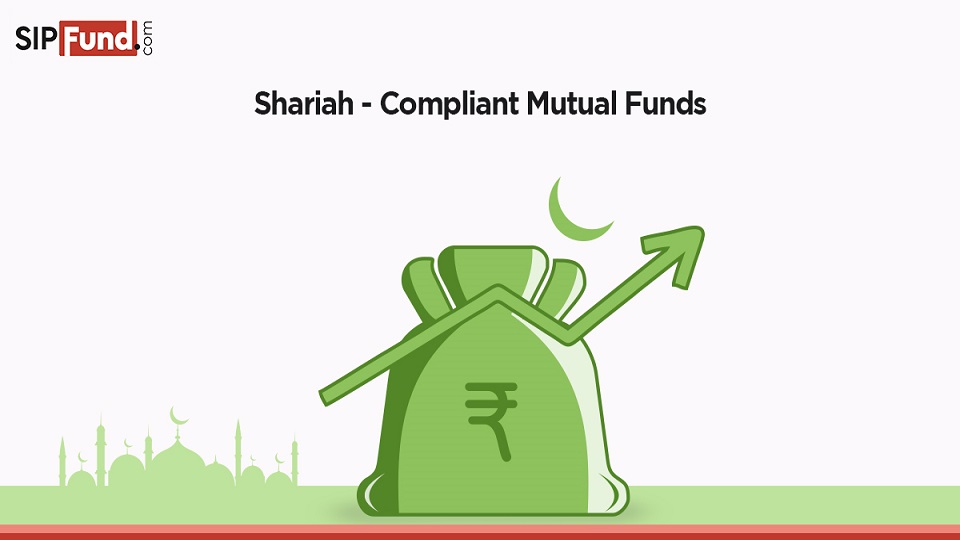
Shariah Compliant Mutual Funds
Introduction
Shariah-compliant funds can be traced back to the mid-1960s when Malaysia and Middle East regions came up with the idea of faith-based investments. The innovation was driven mainly by the people who felt the need of faith-based investments.
What are shariah-compliant mutual funds?
Mutual Funds have many categories of products suited to all kind of investors with different time horizons and risk appetite. Shariah Compliant Mutual Fund is also a relatively new category. It is a socially responsible type of investing which abide by all the rules of Islam community. Shariah is a moral code of conduct for Muslim community. As per the rules of Islam, Muslim community is not allowed to invest in all types of mutual funds. Shariah law has certain restrictions which Shariah believers have to adhere to. Shariah compliant mutual funds are the funds which invest in companies abiding by the laws of Islam community.
When did India introduce the Shariah based mutual funds?
Indian financial markets introduced the concept of Shariah based mutual funds in 2010. The S&P launched two Shariah indices in India in 2010
S&P CNX 500 Shariah:
S&P CNX Shariah is a joint venture between Standard & Poor’s and India Index Services & Products. The S&P BSE 500 Shariah is the complete benchmark for the Indian market.
S&P CNX Nifty Shariah:
The S&P CNX Nifty Shariah constituted the largest and most liquid companies listed on the NSE.
Presently, Three shariah compliant mutual funds are operating in India namely:
Tata Ethical Fund & Taurus Ethical Fund
These funds have an exposure of 80% to 100% in equity and equity related instruments of companies which stringently follow the principles of Shariah. Any excess money available in the scheme must be kept in Current Accounts with banks and are not allowed to invest in any interest-bearing instruments
Nippon India ETF Shariah BeES
Nippon India ETF Shariah BeES provides returns which reflects the returns of Nifty 50 Shariah Index. This scheme invests in Securities listed in the Nifty50 Shariah Index yet it does not qualify itself to be a Shariah compliant scheme
What is the structure of Shariah-compliant mutual funds?
The structure of Shariah-compliant mutual funds in India include the following authorities:
1. Rating intelligence Partners : Ratings Intelligence Partners (RI), which is an independent research agency inspects the stocks and then decide to include them in the index. The RI engages on a daily basis with regional banks to create Shariah-compliant mutual fund products.
2.S&P Index Committee: S&P Index Committee coordinate with RI in order to implement objective guidelines for the day-to-day functioning of each Shariah index.
3.Shariah Supervisory Board: https://en.wikipedia.org/wiki/Sharia_Board has Islamic scholars who understand business issues and suggest viable action related to the indices.
Shariah compliant index reflects the Indian equity market and has a direct bearing to the underlying index.
What are the features of Shariah-compliant Mutual funds?
It is relatively new concept for Indian investors therefore it will take time to get matured. Muslim community’s savings were getting transferred into the hands of government and business sectors. Therefore, Asset Management Companies (AMCs) came up with the idea of shariah-compliant mutual funds. The features of these funds are as follows:
Prohibited companies- As per the Islamic laws, Muslims are not allowed to invest where there is physical, environment and emotional harm is being done. Companies involved in the production of weapons, alcohol, tobacco, pork, any kind of gambling etc. are prohibited from investing in the Shariah- compliant mutual funds.
No income from interest- Muslims cannot take Riba or interest as it is against the moral code of Islam. However, It is very difficult to find a company that has 100% interest free income therefore it is suggested that this fund can invest in companies whose interest income is up to 3% of its total income. A shariah board is appointed which audits the sources of income and if it finds any income from interest then it gets distributed to charity.
Avoid companies with huge amount of debts- Shariah based mutual funds avoids companies with high level of debts and also forbid investment in fixed-income instruments. Companies which are sitting on huge piles of debt i.e when total debt is one-fourth of total assets then these companies cannot be the part of shariah based mutual funds.
All investors can invest- The best feature of this scheme is that it is open to all the investors of every religion. It is not just restricted to the Islam believers.
Tax Treatment of Shariah-compliant mutual funds
Shariah-compliant mutual funds doesn’t provide any tax benefits to investors therefore these are not considered as tax saving instruments. These funds invests majorly in equities so these are taxed as per the rules of taxation for equity-oriented schemes.
(i) Short term capital gains which are accrued when investors hold the portfolio for less than 1 year. STCG are taxed @15%
(ii) On the other hand, long term capital gains are taxed at 10% .Long term capital gains are accrued when holding period is more than 1 year
(iii) Although profits up to INR.1, 00,000 in each financial year are exempted from tax.
Conclusion
Despite many restrictions and limited fund houses providing Shariah compliant mutual funds, investors of all religion can invest in these funds as per their financial goals. These funds invests majorly in real estate and equity products hence long term locking of fund is required to reap the benefits. Therefore investors having patience to tolerate the volatility of equities can choose these funds. The Indian mutual fund industry expects that market of this scheme to get mature in the coming years because of the increased demand from young Muslim population and mobilization of money from the hands of Muslim community to the Shariah based mutual funds
#ShariahCompliantFunds #IslamicFinance #EthicalInvesting #IslamicInvestment #HalalInvesting #IslamicEconomics #IslamicWealthManagement #IslamicFinancePrinciples #SociallyResponsibleInvesting #SustainableFinance
